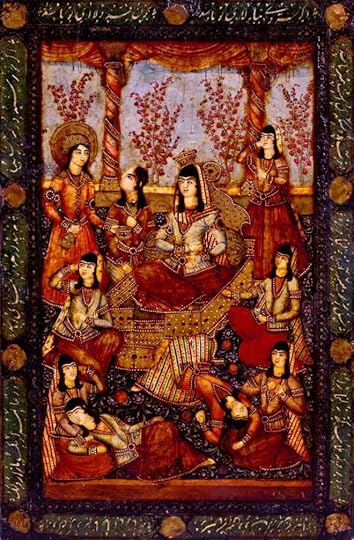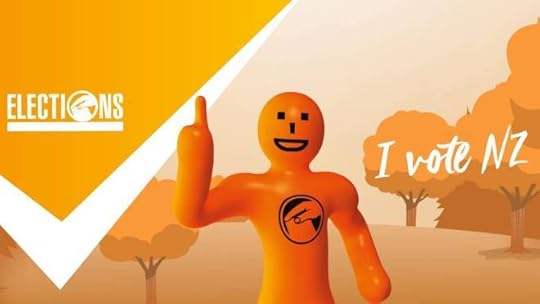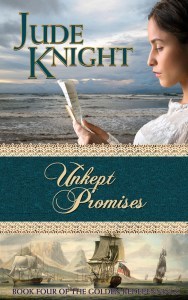Jude Knight's Blog, page 70
October 30, 2020
Medicine: a woman’s place

For my current work-in-progress, I’ve been looking at women physicians in history. My heroine is a doctor, informally trained as an apprentice to other doctors and through private tutorials. Most of this learning took place in her parents own kingdom in the Central Asian mountains of Kopet Dag, or in nearby Iran. This was certainly the path to knowledge for most female practitioners of medicine in Western history. Was it feasible for my Ruth?
In short words, yes. Looked at from the point of view of gender politics, the history of medicine in most cultures has been depressingly similar. Women have done most of the work and got the blame for things going wrong, while men have got the education, the pay and the glory. That might seem quite a large claim, but think about it. Women were responsible for the management of a household, which included care of the sick and treatment of minor injuries. Even today, who usually puts band aids on the cuts and kisses the bruises better? On a community level, someone usually had a greater interest in and better knowledge of herbs and their effects than others, and that person would pass on her knowledge. When home care failed, those who couldn’t afford a university educated doctor or even a surgeon-barber would see the local herb-wife.
A particularly successful healer might find herself something of a threat both to those doctors and to the local religious authorities, who, in many cultures, ran the universities and licensed the doctors. So women’s knowledge was downplayed or discredited. The only part of medicine that women were encouraged to practice was midwifery, until men began to take that over, too. Until recently, the contribution of women has been largely ignored in medicine, as in other fields.
“How amazing is this [that patients are cured at all], considering that they hand over their lives to senile old women! For most people, at the onset of illness, use as their physicians either their wives, mothers or aunts, or some [other] member of their family or one of their neighbours. He [the patient] acquiesces to whatever extravagant measure she might order, consumes whatever she prepares for him, and listens to what she says and obeys her commands more than he obeys the physician.” Sā’id ibn al-Hasan (died 1072)
Nonetheless, the tradition of female physicians and healers goes back to ancient times. There’s a story of a woman in Greece around 2400 years ago who went to Alexandria to train, since the Egyptians had female doctors, and was so successful when she got back to Athens that she was arrested for breaking the law. Her female patients mobbed the court and they had to let her go. (In another version of the story, she trained privately with a sympathetic doctor, and practiced disguised as a man. Other doctors, jealous of her popularity with female patients, accused her of sleeping with them. In court, she stripped off to show she was female.) Be that as it may, we know that Greece had women practicing medicine, as did the Romans.
Most cultures have left traces of elite women who practice medicine–women who are born into a physician family and grow up as apprentices in the trade, or who have access to the wealth and education to defy the norms.
In Britain, we know of at least one woman who attended university as a man and practiced medicine for more than 50 years. She was identified as a man after she died in 1865. Other women were accepted (reluctantly) into the profession because they had qualified in universities overseas. One woman was harassed and abused right through her medical course at Edinburgh university and was awarded a Certificate of Proficiency when she completed the course, rather than the degree given to her male counterparts. She went to Berne, and then to Dublin, and returned with a qualification that allowed her to be registered as a doctor.
In the Ottoman empire, men had several recognised roles in medicine: physician, surgeon, ophthamologist. Women did not have access to formal training or formal recognition, and female medical practitioners were all called midwifes, whatever form of medical care they offered. But nonetheless, women practiced medicine, learning from family or other mentors and private tutors. Indeed, given the strict segregation at the highest level of Ottoman society, female physicians must have been essential on the women’s side of any great house.
My interest, though, is in Iran and its sphere of influence, the Turkmen tribes to the north and east. Did the same apply there? It certainly did in medieval times. I’m still trying to track specific sources for the late eighteenth and early nineteenth century, but meanwhile I’m following the usual cultural pattern in my Ruth’s training.
Ashbury pursed his lips and she waited for him to lecture her on her presumption, but he surprised her with a question. “Minnich tells me you are a physician. Where did you train, Lady Ruth? In the same place as you acquired your warlike attendants? Somewhere in the East, I assume?”
She inclined her head in agreement. “I apprenticed with several healers, including a physician who trained at a teaching hospital in Baghdad. I have also studied with Western physicians, though not since my family arrived in England.” She sighed. “I am well qualified to attend your niece, my lord, even though I am a woman.” And you have no one else, she wanted to tell him.
His eyebrows jerked upwards in response. “That’s not — I am not questioning your abilities, my lady.” His short laugh held no amusement. “I cannot afford to, after all. I have no alternative to offer.”







October 28, 2020
Do children have a place in romance? Work in Progress Wednesday

‘Black Monday or the Departure for School’, 1919. After William Redmore Bigg (1755–1828)
Somehow, I find myself including children in my stories. Perhaps it is because I am a mother and a grandmother and I write what I know. Or perhaps that putting children into the equation of a marriage adds an extra element with huge potential for plot and character development. However that may be, I’m back into blogging again with another Work in Progress Wednesday invitation. If you have children in your current work in progress, how about giving us a sneak peak by posting an excerpt in the comments?
Mine is from To Mend the Broken Hearted. My hero, Val, is helping in the sickroom, where two of the sick are the little girls he is responsible for. They were born after he was posted overseas, and have been at school for the entire three years he has been home. Mirrie is at the sore throat stage of the smallpox, by the way, hence the staccato delivery.
He entered the room as quietly as he could. The sickest of the schoolgirls was coughing bitterly as a maid tried to encourage her to drink something for her throat. The adult patient was sleeping. The two girls Val was responsible for had reached an arm across the gap between their beds, their hands held in the middle. They lay, each on the edge of their own bed, facing one another, talking in scattered words with long pauses between.
“I met Father.” That was Mirabelle. She had her mother’s build; small-boned and slender, but the blonde hair could have come from either side.
“Nice?” Genevieve was also fair-haired, but with the heavier build of the Ashbury line.
Mirabelle moved her head in a shallow nod. “Kind. Looks a bit like Uncle. But not angry. Kind, Genny.”
“Did you ask?”
Mirabelle shook her head. “Not yet.”
Genny roused enough to insist, “He can’t send us away again while we’re sick.”
“Kind,” Mirrie insisted.
“You think he will let us stay home?”
Mirrie nodded. “Kind,” she repeated
Val concealed his wince. He had no right to the child’s good opinion. He’d done his best to forget the pair of them, even resented Mirrie’s monthly letters because he was honour-bound to think about her long enough to write a cursory reply.
He backed to the door again, and called, “Greetings, ladies. I am on my way to bed, and thought I would come to wish you a day of healing.” The words took him across the floor to the bedsides of the two girls. He smiled at Genevieve. “I know who you are. You are Genny, my brother’s little girl.”
“Lord Ashbury,” the child answered, hope and hesitation mingled in her eyes.
“Uncle Val,” Val suggested. No doubt purists would have a fit to hear a child use such casual address, but hearing their opinion of his brother — angry? what had the old devil put them through? — made him determined to distance himself from the name Mirrie had known the man by. What did Genny call her father? Not Papa, Val was certain.
Genny rewarded him with a smile. “Uncle Val.”
“Rest, my ladies,” he told the two of them. “I need to talk to your attendants, and then I’m off to bed, for I was up all night helping Lady Ruth. I will see you this evening, and will hope to find you both much better.”







August 30, 2020
The power of the people

On 17 October, New Zealanders go to the polls to elect their representatives for the next three years. As in every election since I was old enough to vote, I’m faced with a selection of candidates and parties that don’t fully represent me. Those that are strong on one of the policy settings I’m passionate about are diametrically opposed to another. I want social settings that lift up the poor, look after the disabled, protect the vulnerable. None of them promise me that.
It’s a dilemma I’ve resolved in a number of ways over the years. I’ve voted for independent candidates and minor parties. I’ve split my votes, supporting a candidate I believe will work hard to represent the area I live in and giving my party vote to another party. I’ve voted two ticks (electorate and party votes both for the same party).
(New Zealand has mixed member proportional voting. One vote goes for a candidate standing in your electorate; the other for the parties that are registered with the Electoral Commission. Once all the votes are cast, the seats in Parliament are split among the parties according to the percentage of the party vote each gets. The leader of the party or coalition of parties with the most members becomes our prime minister. Since MMP came in, we’ve never had a majority government, and we’ve always had at least five and often more parties with the 5% of the vote they need to get a Parliamentary seat. I lived under a two-party system for half my life, and I can tell you, I don’t want to go back there. MMP rocks.)
Seven principles for a just society
One thing I don’t do is vote on a single issue. My vote is informed by Catholic teaching. All of the teaching. All seven principles, not just one or two that I decide, in my defective wisdom, to be more important.
Life and Dignity of the human person.
Solidarity.
Care for creation.
Call to family, community and participation.
Option for the poor and vulnerable.
Rights and responsibilities.
Dignity of work and rights of workers.
All of these matter, and I can’t throw out six of them in order to vote for a party that supports only one and trashes the rest. To take one of the most divisive of issues, I believe that the dignity of the human person and a respect for rights and responsibilities means we must give people the choice about decisions around their own health and well-being. I fully support women’s choice, right up to the moment there’s another life in the balance. I want children to be treasured and welcomed, and I’m not prepared to put an artificial boundary on when that cluster of cells become human.
But a simple look at the numbers shows us that things aren’t that simple. Abortions increase under a government that limits abortion access without providing better maternity care, easier access to social support structures, stronger community support for working parents, and all the other things that allow women to make fear-free and independent choices to keep the life they are nurturing within them. They decrease when a government provides all those things, even if it makes abortion a right.
The same with the other issues. Parties that strongly support care for God’s creation are often anti-family and preference policies that undercut small businesses and therefore communities and workers. Parties that support economic growth because they believe a strong economy will provide for communities and workers often trample of the poor and vulnerable. Indeed, in New Zealand, we’ve seen child poverty and homelessness creep up and up under the party that was in Government for nine years prior to the election in 2017.
Voting is essential, but it isn’t enough
Taking everything into account, I can’t wholeheartedly vote for any party. But I can’t refuse to vote. Voting is an obligation; it is not just my democratic right, it is one of the ways I exercise my responsibilities as a citizen. One of the ways. Another is to continue to advocate, between elections, for the kind of society I believe in; one in which all of the seven principles I believe in underpin every policy decision. I can speak to my friends. I can hassle my Member of Parliament. I can make submissions on legislation. Democracy isn’t just a matter of casting a ballot.
This time around, I’m voting for candidates and parties that promote solidarity; that look to build community and teamwork, and to solve problems collectively. When any one issue is promoted above another, when one segment of society is pitted against another, when people refuse to debate with reason and respect, any hope of achieving a just society breaks down completely.
Be kind, people. Be the person who creates peace and respect. Only then can we change our country for the better.







May 10, 2020
Spotlight on Music on the Waters
St Magnus Cathedral, and its organ, play a central part in Music on the Waters, the latest novel from Caroline Warfield. The video above gives the history of the cathedral.
I love stories about two people groping their ineffectual way towards an understanding, and this is a delightful one. The hero is a successful businessman, but hasn’t been quite as successful in understanding his now deceased wife. He needs help with his wild children, especially the daughter who seems increasingly distant. But he is certainly not interested in another meek conventional wife who won’t express an opinion of her own.
Ann appears on the surface to be such a woman, but Alec first sees her when she is playing the organ — can he coax her to be, with him, the vibrant passionate woman she becomes when she plays?
Ann is the daughter of a bullying father, well used to everyone telling her that her thoughts, feelings, tastes, and opinions are wrong. She has learned to hide her appreciation of, and talent for, the music of the great masters. Instead, she teaches and conducts saccharine ballads, while yearning for something more. She has no idea what Alec is up to, but she doesn’t trust it.
The outcome of this romance was never in any real doubt, but the steps and missteps in the developing relationship are wonderfully satisfying, and Warfield has also given us a delightful supporting cast, including a trio of engaging children.
You won’t regret buying this story (for a mere USD99c, or free on KU). Without the twists and the life and death situations of Warfield’s great Children of Empire series or her compelling Christmas Hope, it nonetheless left me with a smile and a warm heart. Perfect comfort reading.
Music on the Waters
Sir Alexander Bradshaw needs a wife, a sensible woman to manage his unruly sons and sullen daughter. No suitable candidates appear, however, and Alec resigns himself to spend another long, dark Orkney winter companionless. When an acquaintance suggests a music teacher might occupy his daughter, he embraces the idea.
Ann Dunwood travels to Orkney for the opportunity to play the Kirkwall organ. For the beauty of the instrument, Ann endures the conservative choir members who wish to perform the most banal of hymns; she’s done it before. She knows how to fade into the shadows and keep to her place.
When he happens upon Ann in the cathedral, Alec is enchanted by the woman at the keyboard, who fills the room with a Bach fugue. Yet, when the music ends, the object of his fascination turns into a demure mouse. Alec determines to reignite the passion he glimpsed in her and fill his home with music.







April 24, 2020
We will always remember: Anzac Day 2020
This video is about the war that began the ANZAC spirit, commemorated this morning in the middle of lockdown as, all over New Zealand, people went to their gates to show their respect for those who served and protected.
To see further episodes, go to the New Zealand onscreen website.







April 22, 2020
Please help! Vote for Unkept Promises for a RONE Award
 Unkept Promises has been nominated for a RONE Award
Unkept Promises has been nominated for a RONE Award
Please help!
The RONEs are run by InD’tale Magazine, and books go through three rounds.
Round 1 is to be reviewed by one of the magazine’s readers and get a star rating of 4.5 or higher.
Round 2 is reader voting — that’s the stage we’re up to. Voting for my category is open until 26th April (in whatever time zone they publish). Here’s the link: https://indtale.com/rone-awards-week-two-april-20-26
The books with the most votes go to industry professionals for Round 3, to determine the very best book in the indie and small published world.
Help me get to the next round?
To vote, you need to be registered on the Ind’Tale website, but it’s easy to register, and the monthly magazine is full of book news and reviews, and free.







April 20, 2020
Tea with the Countess of Sutton

Sophia came to the door of the heir’s wing, and was conducted to Eleanor’s private sitting room by Aldridge’s major domo. Haverford had been upset, when he returned from his convalescence in Kent, to discover that the sister of his protege had married the son of his bitter enemy. But his one attempt to suggest that the Earl of Hythe should cast his sister off for her messalliance had been met with a cold stare, and had nearly cost him the boy’s political support. After that, he gave the new Countess a frost nod when they met, and otherwise pretended that she did not exist.
Even so, Eleanor saw no reason to rub his nose in her continued meetings with the darling girl, and so she had suggested the more circuitous route. What Haverford did not see would not annoy him.
The duchess rose to give Sophia a hug. “You are looking well, my dear. I was concerned when you had to leave the garden party early.”
Sophia blushed. “I am generally well, Aunt Eleanor. But I become very tired, these days. I am told it will be easier in a month or two. For a short time.”
She looked down at the hands in her lap, a small smile playing around her lips.
“Sophia! How wonderful! You are with child? When do you expect the happy event?” Eleanor couldn’t be better pleased. How lovely for this much loved god daughter, who had suffered much from the loss of two betrothals and had resigned herself to becoming an old maid before Viscount Elfingham, now the Earl of Sutton, saw what a treasure she was.
And how lovely for James. The father, not the son. Well, the son too, of course. He must be very proud of his wife and thrilled to be becoming a father. But James, through the marriage of his son, had secured the duchy as he desired. Eleanor beamed, and set about a cross examination of Sophia’s health and wellbeing.
Sophia is the heroine of To Wed a Proper Lady.







April 19, 2020
Podcasts on Historical Romance

Hello, household bubble dwellers. Missing book club and those chats at work about your favourite reading? Maybe these podcasts might help:
Interviews with authors of new books in historical fiction, from apple podcasts.
A variety of historical romance podcasts collected by Player FM. Includes some classic books, one on reading steamy romance with your mum, interviews with authors, and a discussion on Outlander.
One that calls itself 20 top romance podcasts you must follow in 2020. It is broader than just historical, but includes Tea & Strumpets, which discusses Regency, and I also see names like Julia Quinn and Sarah Maclean.







April 17, 2020
Worried? Read romance

You know how people have been telling you that your reading habits should be a guilty secret? Escapist, they call our beloved romances. Well, guess what. It’s time to escape.
Here’s an article from Australia about reading habits in times of war and worry: https://www.abc.net.au/news/2020-03-29/coronavirus-why-we-read-romance-fiction-in-a-crisis/12097592
Another from the UK: https://www.theguardian.com/books/booksblog/2020/mar/09/need-cheering-up-right-now-try-reading-a-romance-novel
And another from the US: https://www.bustle.com/p/readers-turn-to-romance-novels-in-tough-times-coronavirus-is-no-exception-22646783
Some recommendations from one reader: https://www.oprahmag.com/entertainment/a31471225/coronavirus-anxiety-reading-books-help/
And, if you want some suggestions in historical romance, someone has collected their 97 favourites under ‘the best’ label. I’d agree that those I’ve read from this list are all great, and I think I might find a few new ones: https://fictionobsessed.com/romance/best-historical-regency-romance-novels/







April 15, 2020
Wounded heroes on WIP Wednesday

Or heroines, for that matter. Or even villains. As writers, we learn to look for the flaws or wounds that prevent our characters from reaching their happy ending. In a compelling story, while there may be external challenges, the internal ones are what gives the story depth and makes it a must read. Think Frodo. Think King Arthur. Think Jo Marsh of Little Women.
If you’re an author and want to play, use the comments to give me an excerpt from your work-in-progress that touches on a character’s wounds. Here’s a piece from To Mend a Proper Lady, the next book in the Mountain King series.
Val left Barrow to his son and horses, and set off to trudge back through the fields to the house, running the last few hundred yards through blinding hail.
Crick, his manservant, fussed over his towel and his bath and his dry clothes, and Val allowed it. This kind of weather was too much like Albuera for Crick’s demons, immersing him back into the confusion and the pain. Val told himself that he kept the old soldier out of compassion. During his worst moments, he feared his motivation was more of a sick desire to have someone around who was worse than him.
By the time Val was warm and dry again, the thunder had started. He sent Crick off to bed. There’d be no more sense out of the poor man tonight, nor much from Val, either. He refused the offer of dinner and shut himself up in his room so no one would see him whimpering like a child.
It was not until the following day, after the thunderstorm had passed, that he remembered the mail, but he couldn’t find it. Mrs Minnich, the housekeeper, remembered that it had been delivered, and thought Crick had taken it, but what happened after that no one knew, least of all Crick. He had got roaring drunk and surfaced late in the day with a bad headache, a worse conscience, and no memory of the previous day at all.










